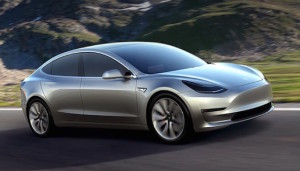
Tesla Motors CEO Elon Musk (above) is looking beyond his planned ‘Gigafactory 2’ in Germany and towards Britain, where he says he is likely to set up an engineering group for his electric cars.
“We have a lot of respect for the British automotive engineering talent. Just look at Formula One – it amazes me how much British talent there is in that,” he said after buying German company Grohmann Engineering.
“Tesla is going to make some very significant investments in Europe. There is no question of at least one, maybe two or three Gigafactory locations in Europe in the future. We think the right thing to do is to start producing cars there as soon as we can reasonably do so”.
Musk does not see Brexit and the current climate of financial insecurity surrounding Britain as a hindrance, and that Brexit is not likely to have “a significant impact” on Tesla’s plans.
Musk bought Grohmann Engineering in order to use its expertise in robotics to produce cars and battery packs at Tesla’s existing and future plants. The deal is expected to be approved by regulators early next year.

Eventually, says Musk, electric cars will be built at ‘Gigafactory 2’. ‘Gigafactory 1’ is of course the plant Tesla is building in the US state of Nevada. Tesla planned it as a production centre for lithium-ion battery packs and assorted components, but now it is expected to build Tesla drive systems.
The new German company will be renamed Tesla Grohmann Engineering and headed by its founder and CEO Klaus Grohmann. It is based in Prum, in Germany’s far west, the headquarters of chainsaw maker Stihl.
Tesla said in a statement: “We expect to add over 1000 advanced engineering and skilled technician jobs in Germany over the next two years.
“Under the continued leadership of Mr Grohmann, several critical elements of Tesla’s automated manufacturing systems will be designed and produced in Prüm to help make our factories the most advanced in the world.
“Combined with our California and Michigan engineering facilities, as well as other locations to follow, we believe the result will yield exponential improvements in the speed and quality of production, while substantially reducing the capital expenditures required per vehicle.”
Tesla says it expects its German subsidiary to contribute to better economies of scale and further manufacturing gains as the carmaker works to meet its target of 500,000 cars a year by 2018.
To do so it would have to launch its Model 3 sedan on time next year and then continue to ramp up production. It says it has expanded its Fremont, California, factory by 400 per cent over the past four years and is on course to build around 80,000 cars this year.
